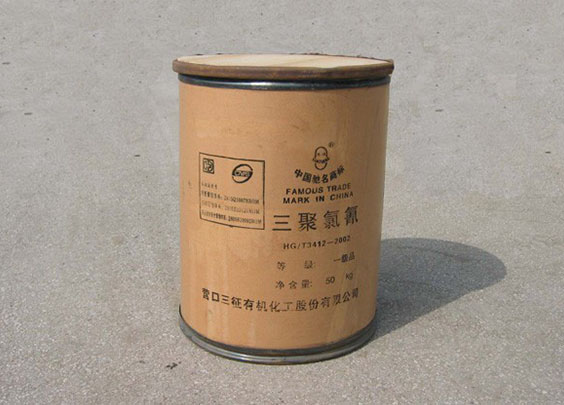
YINGKOU SANZHENG ORGANIC CHEMICAL CO., LTD. LIAONING CHINA
Address: No. 51, Xinxinli, Daqing Road, Zhanqian District, Yingkou City, Liaoning, China電話:0417-3638868
Fax: 0417-3638868
Email: ykszgs@sohu.com
Zip code: 115001
URL::m.zblyyz.com
1. Pesticide manufacturers prevent decomposition. The place where pesticides are stored should be cool, dry, and ventilated, and the temperature should not exceed 25 degrees Celsius. Keep away from fire sources to prevent high-temperature decomposition of the pesticides.
2. Prevent volatilization of pesticides. Since most pesticides are volatile, sealing measures should be taken to avoid volatilization reducing the efficacy, polluting the environment and endangering human health when storing pesticides.
3. Cyanuric chloride prevents misuse. Pesticides should be put together in one place, and the bottled pesticides should be ruptured, and the packaging should be changed and labelled to prevent misuse.
Fourth, synthetic ammonia prevents failure. Powder pesticide should be placed in a dry place to prevent it from becoming damp and caking.
5. Synthesize ammonia to prevent poisoning. Pesticides should not be stored in the same room as grains, oils, beans, seeds, vegetables, food and animal feed. Take special care not to place them in a place where children can reach.
Sixth, prevent deterioration. Pesticides should be stored separately. According to their chemical composition, pesticides can be divided into three categories: acidic, alkaline, and neutral. These three types of pesticides should be stored separately and not too close to prevent the pesticides from deteriorating; they cannot be stored together with alkaline substances, ammonium bicarbonate, ammonium nitrate, etc. at the same time.
7. Prevent fire. Do not put pesticides and flammable and explosive materials together, such as fumigant, gasoline, etc., to prevent fire.
8. Prevent freezing. Take care to prevent freezing at low temperatures and keep the temperature above 1°C. The common way to prevent freezing is to cover and keep warm with chopped firewood, chaff or unused quilts.
9. Prevent environmental pollution. A small amount of pesticides that have expired or remain are not allowed to be dumped on the field, let alone poured into ponds, streams, rivers or wells. It can not be used after increasing the concentration at will, and it should be buried deeply to avoid environmental pollution.
10. Prevent sun exposure. Pesticides in brown bottles generally need to be stored away from light. Pesticides that need to be kept away from light, if exposed to light for a long time, will cause the pesticides to decompose and become invalid. For example, after being exposed to the sun, emulsion pesticides have poor emulsifying properties and reduced efficacy. Therefore, the sun must be avoided during storage.
11. Prevent mixing. Pesticides are acidic, medium and alkaline. Acids include dichlorvos, deltamethrin, etc.; neutrals include triazophos, dimehypo, Pingshijing, fipronil, etc.; alkalines include Bordeaux mixture, lime sulfur mixture, agricultural streptomycin, thiazolium copper, etc. These three different types of pesticides should be stored separately in winter (preferably at least 2 meters apart), and the two pesticides that cannot be used up should not be mixed in one bottle to avoid failure.
